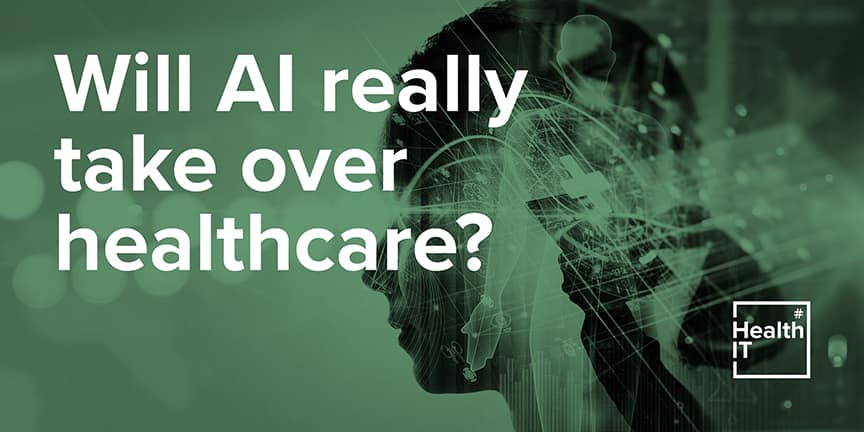AI taking over healthcare is a possibility.

Artificial intelligence (AI) is transforming our world. It’s considered an extremely efficient solution for a wide variety of applications. That also applies to integrating AI in Healthcare. Given the increasing complexity and abundance of data in the field, AI can offer many potential benefits. Thema Group provides diverse jobs to contribute to the future of AI in healthcare IT!
We’re using the latest technology, apps and data to help businesses and professionals. These technologies have the potential to improve patient care, reduce costs & streamline administrative processes between provider, payer, pharmaceutical organisations and boost the efficiency of healthcare organizations. Combined with our knowledge to strengthen companies with professional candidates in Healthcare IT, it will make the difference for multiple businesses every day.
There are many different applications for AI in Healthcare, including:
1. Diagnosis and treatment planning:
Artificial intelligence (AI) algorithms are capable of analyzing medical images like MR, CT scans and other imaging devices to aid doctors in identifying diseases and planning treatments. An AI system can be trained to recognize the specific characteristics of a particular type of cancer, and then suggest a treatment plan based on the most effective practices for that type of cancer.
2. Predictive analytics:
Artificial intelligence (AI) proves to be valuable in the analysis of patient data, such as electronic health records and laboratory results, to forecast the probability of future health occurrences. For instance, an AI system could investigate a patient’s medical history, lab results, and other data to anticipate their chances of contracting a specific disease or encountering a medical episode like a heart attack.
3. Clinical decision support:
Artificial intelligence (AI) can assist doctors in making more informed decisions by providing them with relevant information and recommendations based on a patient’s medical history and current condition. An AI system could propose a specific diagnostic test or treatment, for instance, based on the patient’s symptoms and other factors.
4. Population health management:
Artificial intelligence (AI) detects trends and patterns in extensive sets of patient data, thereby assisting healthcare organizations in gaining a better comprehension of the health requirements of their patients. This data turns out being useful to formulate customized prevention and wellness programs, or to identify patients who are at a high risk of developing specific conditions and intervene early to prevent or manage those conditions.
5. Administrative tasks:
Artificial intelligence (AI) automates a range of administrative tasks in healthcare organizations such as appointment scheduling, insurance claim processing and electronic health record management. This can help to reduce the workload on the healthcare professionals that we match with your company, so they can refocus on providing direct patient care.

AI in healthcare
The potential benefits are stated above, in black and white. Nonetheless, it does not possess the logical thinking and reasoning of a real human being.
Implementing AI in healthcare brings about certain challenges and concerns. For instance, if an AI system is trained on data from a population that does not represent the general population, it may generate biased predictions or recommendations. AI system developers in healthcare should be well aware of these potential biases, so that they can anticipate consequences.
Serious consideration must also be given to an AI system providing potential inaccurate information and therefore causing severe consequences for patients. A critical look on the precision and dependability of AI in healthcare remains indispensable. This should include testing and meticulously verifying these AI systems before their implementation in clinical practice is as well.
Overall, AI will revolutionize the field of medicine and improve patient care in a number of ways. As the technology continues to advance and become more widely adopted, it will be important to carefully consider the ethical implications and to ensure that AI is used in a responsible and transparent manner.
AI in healthcare is rapidly growing and Thema Group understands the requirements for each position in Healthcare IT and which candidates seem best suited for it. That’s why we use our specialized recruitment process to offer interesting jobs to skilled candidates.
